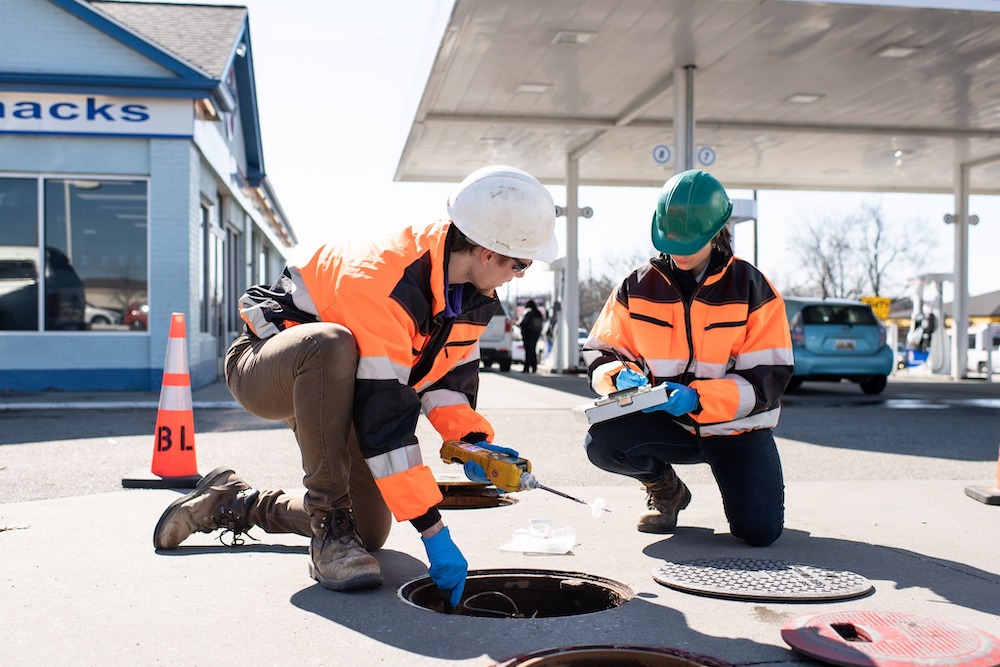
- Details
- By Brian Edwards
- Real Estate
Waséyabek Development Company, LLC, the non-gaming economic development arm of the Nottawaseppi Huron Band of the Potawatomi tribe, has purchased a majority ownership stake in BLDI, LLC, an environmental engineering, consulting and remediation firm headquartered in Grand Rapids, Michigan. Terms were not disclosed.
The acquisition expands Waséyabek’s capabilities with the addition of environmental services that supplement work the tribal enterprise is already doing for federal clients, other tribes, and other internal clients, including the tribe and its enterprises, according to President and CEO Deidra Mitchell. BLDI could also leverage Waséyabek’s support and infrastructure to go after standalone federal contracts as a prime contractor, she said.
The acquisition creates a growth opportunity for both companies because the services BLDI delivers are largely impervious to economic slowdowns or recessions, Mitchell told Tribal Business News. “With any business that you own, there is always some kind of environmental thing that comes up,” she said.
Leslie DeBoer, who has served as BDLI’s president since February 2023, will remain in that position following the acquisition, which closed last Friday. Both DeBoer and Richard Spehar, a principal at the firm, will continue to own minority stakes in the firm.
Founded in 1991, BLDI employs 25 and posted revenues of about $4 million last year, according to DeBoer. The environmental firm has offices in Grand Rapids and metro Detroit that serve customers around the country, with a strong concentration of work in Michigan, Illinois, Indiana and Ohio.
BLDI’s staff of engineers, geologists, scientists and business professionals provide a range of services, including environmental due diligence and risk assessment; Phase 1 & Phase 2 Environmental Site Assessments; PFAS testing and remediation; underground storage tank assessment, removal and corrective actions; asbestos surveys; brownfield assessment grants, cleanup, remediation and closure; soil sampling; vapor intrusion and indoor air quality surveys, and wetlands assessment.
With the acquisition, Waséyabek’s portfolio of non-gaming investments increases to 30 entities including real estate, professional services, manufacturing and federal contracting. The company employs more than 450 across its operations.
WDC’s internal due diligence team handled the execution of the acquisition with support from accounting and financial advisory firm BDO and the law firm Dickinson Wright.
The acquisition of BLDI comes in the wake of a recent federal court ruling that is creating anxiety for some tribal businesses participating in the SBA’s 8(a) federal contracting program that generates billions of dollars in annual revenues for tribes and their enterprises across Indian Country. The SBA has suspended new 8(a) applications and is requiring some current 8(a) firms to submit narratives detailing the specifics of their social disadvantages.
“It doesn't look like there will be a long-term impact for tribes,” Mitchell told Tribal Business News this morning. “We're hopeful that things continue as they are; even if (they don’t), it has always been WDC's intention to grow our 8(a) companies to compete in the full and open market.”
That’s not a common strategy for many tribal entities, which often just keep standing up and rolling over 8(a) companies as time progresses, Mitchell said, adding that Waséyabek has a different vision for its federal contracting firms.
“We have always had the vision to graduate our companies from the 8(a) program into full and open competition as the program intends,” she said.
